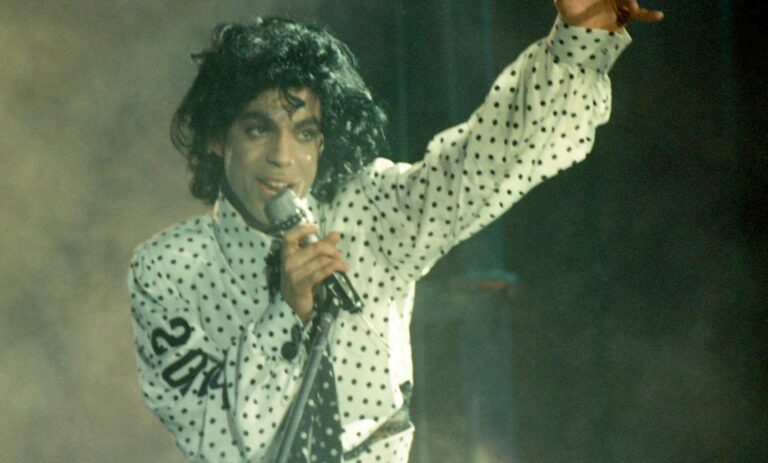“Oppenheimer” reigned at the 81st Golden Globe Awards on Sunday just as it once loomed large at the summer box office. The sprawling examination of J. Robert Oppenheimer and the creation of the atomic bomb racked up five wins, the most of any movie, including the prize for best motion picture drama. “Poor Things,” a feminist reimagining of the Frankenstein tale, was named best motion picture, musical or comedy, one of two victories for the post-modern film.
On the television front, “Succession,” a scabrous look at a Murdoch-esque mogul and his dysfunctional family, won a leading four prizes, including best drama series. The show ended its four-season run in May. “The Bear,” the story of a Chicago restaurant struggling to keep its doors open, earned three prizes, including best comedy series and best leading actor and actress in a musical or comedy for Jeremy Allen White and Ayo Edebiri.
“Beef,” a dramedy about the aftermath of a road rage incident, also won three statues — it was named best limited series, while picking up acting prizes for Ali Wong and Steven Yeun. Lee Sung Jin, the show’s creator, thanked the real-life driver who prompted him to make the series. “Sir, I hope you honk and yell and inspire others for years to come,” he said.
“Oppenheimer’s” Christopher Nolan, who leveraged his success making blockbusters like “The Dark Knight” and “Inception” to get Universal to produce a $100 million drama about a physicist, won best director. Cillian Murphy, who played the brooding scientist at the center of the film, was named best actor in a drama. The movie also was honored for its atmospheric score.
Lily Gladstone received the award for best female actor in a drama for playing an Osage woman who is targeted for her oil wealth in “Killers of the Flower Moon.” She noted that the recognition was a historic moment for the indigenous community, which has often been overlooked or marginalized by the entertainment industry. “This is for every little res kid, every little urban kid, every little native kid out there who has a dream and is seeing themselves represented,” Gladstone said.
Emma Stone was honored as best female actor in a comedy for playing a childlike woman who embarks on a journey of sexual and emotional discovery in “Poor Things.” Stone said the role of Bella Baxter made her “look at life differently” because of the way her character “accepts the good and the bad in equal measure.” Paul Giamatti, named best actor in a comedy for his portrayal of a caustic prep school instructor in “The Holdovers,” dedicated his award to teachers. “We’ve got to respect them,” he said. “They do a good thing. It’s a tough job.”
“Succession’s” Kieran Culkin and Sarah Snook won best male actor and best female actor in a TV drama for their portrait of conniving “nepo babies” jockeying to take over their father’s media company, while Matthew Macfadyen earned a best supporting male actor prize playing the “human grease stain” who outmaneuvers them on the show.
The Globes, traditionally a clubby, chummy event, took place following one of the most chaotic and divisive years in Hollywood history as the writers and actors unions went on strike for months, fighting over restrictions on the use of A.I. and a streaming business model they claimed made it harder to earn a living. The Screen Actors Guild and the Writers Guild of America eventually reached deals in September and November, but production on many movies and shows was disrupted, leaving an economic toll.
Sunday’s ceremony was broadcast on CBS, a new home for the telecast, which had aired on NBC since 1996. It caps a tumultuous period in the awards show, which has been rocked by scandals in recent years and is trying to reinvent itself. For decades, the Globes were an essential stop in Hollywood’s awards show gauntlet, as well as one of the hottest parties in town. Booze flowed freely at the show, which was looser and less inhibited than the stuffier Oscars (more than one winner nearly missed their big moment because of ill-timed bathroom breaks).
But the party stopped in 2021 with a bombshell report in the Los Angeles Times that revealed that the Hollywood Foreign Press Association, a small collection of roughly 90 entertainment journalists that voted on the Globes, had no Black members. The Times also exposed ethical issues within the organization, which had a reputation for enjoying lavish studio-funded junkets and nominating films of questionable quality (the Cher bomb “Burlesque” was a major contender one year). But the Globes have reemerged, dissolving the non-profit HFPA, instituting new codes of conduct, and bolstering its voting body to more than 300 journalists. Ten percent of Globes voters are Black, according to the organization. The new for-profit awards show is owned by Dick Clark Productions, which shares a parent company, Penske Media, with Variety.
Among other changes, the Globes introduced two new categories: an award for best blockbuster, which went to “Barbie,” and one for stand-up comedy special, which was won by Ricky Gervais, a five-time Globes host. Like “Oppenheimer,” “Barbie” was an unlikely box office success in a business dominated by action and comic book movies, something its star and producer Margot Robbie mentioned while accepting the blockbuster prize. She thanked Warner Bros. and Mattel, the film’s backers, for “literally inventing numbers to justify green lighting this, and then standing by at every step of the way.”
Comedian Jo Koy hosted the show and peppered his opening monologue with jokes about Robert De Niro having a kid at 80, Barry Keoghan’s full-frontal nudity in “Saltburn” and the three-hour runtime of “Oppenheimer.” “My New Year’s resolution for 2024 is to finish ‘Oppenheimer’ in 2025,” Koy said. “Seriously! I’m almost there! I loved ‘Oppenheimer.’ Especially the first season.” Koy’s quips received a muted response from the celebrity-heavy crowd, a tepid reaction the host acknowledged. “I got the gig 10 days ago,” he said. “You want a perfect monologue? Shut up.”
The Globes have an erratic track record for predicting eventual Oscars success. Last year’s top prizes went to “The Fabelmans” and “The Banshees of Inisherin,” but it was “Everything Everywhere All at Once” that would go on to win the Academy Award for Best Picture. But other past Globes winners like “Nomadland” and “Green Book” have prevailed at the Oscars. A perfectly calibrated speech can also help contenders build momentum. To that end, “Oppenheimer’s” Robert Downey Jr., characteristically droll while accepting his best supporting actor prize, and “The Holdovers’” Da’Vine Joy Randolph, heartfelt and moving as she received her best supporting actress statue, elevated their candidacies.
There were plenty of surprises among the evening’s prizewinners, including “Anatomy of a Fall’s” best screenplay victory over “Barbie” and “Oppenheimer,” as well as Elizabeth Debicki (“The Crown”) beating out Meryl Streep (“Only Murders in the Building”) for best supporting actress in a TV show.




